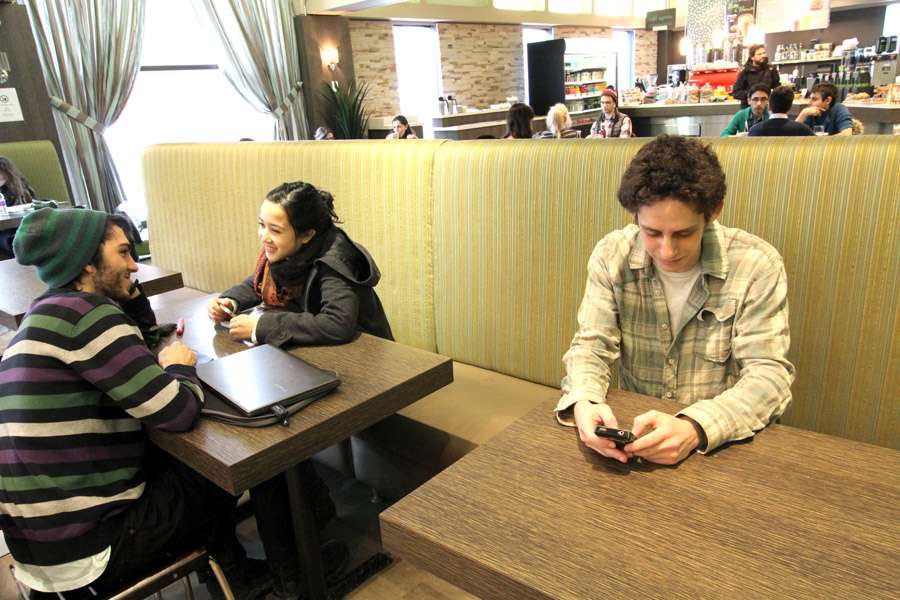From Facebook to Instagram to the multitude of dating websites, we live in a digital age where speaking to someone or finding out what they’re up to is just a click away. Social media platforms are built on the premise of being able to instantly connect with others—to share our thoughts and experiences instantaneously. But how does our reliance on technology affect loneliness?
According to a 2009 study from Kent University and Michigan State University, people dealing with feelings of loneliness are more likely to turn to these virtual forms of communications. For example, they view sending a text message as “less risky and easier than face-to-face communication.”
Jui Ramaprasad, a McGill Management professor specializing in online communities, said the ease of virtual communication is a main driver for people seeking online dating forums, such as Tinder and OkCupid.
“The boundaries you see offline aren’t necessarily there online,” Ramaprasad says. “You can just pick up your phone and decide ‘I’m going to date right now.’ It gives an opportunity to people who are less inclined to be social in a traditional sense.”
From this point of view, social media seems like a perfectly simple solution to a rather commonplace problem, but ironically, study after study has come to the same unexpected conclusion: social media facilitates loneliness. Current research indicates that it may do so in two ways.
Firstly, the 2009 study showed that lonelier people are at a higher risk of developing compulsive internet-use behaviours—the inability to display self-restraint with online media use. These behaviours often lead to deficits in aspects of life—whether it is in work, school, or social life. Rather than relieving the original isolation, however, compulsive internet-use can escalate the problem, leading to even more loneliness.
“The increased problems might drive them to rely more on their favourite online activity as a means to diminish or escape their augmented troubles, which could isolate them and increase loneliness more,” the researchers state in the study.
Secondly, what people post online is a very small, hand-selected snapshot of their actual life.
“I can see it having a bad side for some if you don’t recognize that people put the best parts of their lives up, and it’s not always the most accurate,” McGill U2 Arts student Breanna Morris says.
Users of social media can think through a post or perfect an image before sharing with their social circle. As a result, viewers of these posts may come to the conclusion that other people’s lives are much more exciting and glamorous than their own. While this way of thinking can have a negative impact on self-image in general, it is even more detrimental to those who are already dealing with insecurities and feelings of disconnectedness.
“It enhances the way I perceive other’s lives,” Ben Turner, U1 Arts, says. “I think social media makes me believe people are cooler and loving life more than they actually are.”
This same selective infromation sharing may not only glamourize their peers’ lives; it may also drive a wedge between individuals and their peers.
“I think people tend to hate on people that only post positive […] and perfect things because it makes them jealous, thinking that other people’s lives are so much better than their own,” Morris says.
At the end of the day, technology can result in a vicious cycle of secluded people trying to connect through social media, which can increase their loneliness and further increase their social media use. This digitized world can be both a blessing and a curse, but it is by no means a substitute for human interaction.
“I find [social media] extremely useful for reaching groups of people, and for easily keeping in touch with long-distance friends,” Turner says. “Social media is definitely necessary, but I can’t live without real conversations.”







